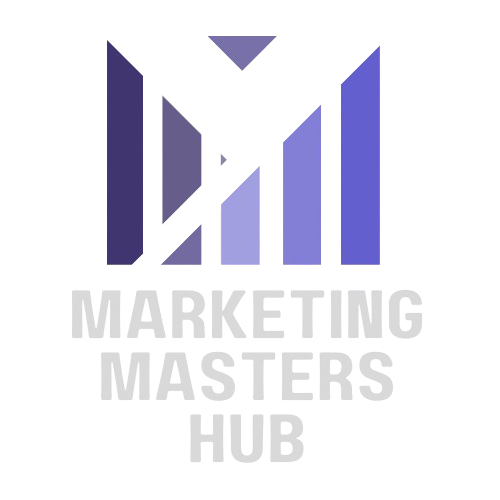Introduction: The Demand Generation Imperative in Tech
In the technology sector, demand generation is more than just a marketing function—it’s a strategic imperative. With fierce competition, rapidly evolving markets, and increasingly sophisticated buyers, tech companies must go beyond traditional lead generation to create meaningful, lasting connections with their audiences. This is where specialized agencies come in. By combining data-driven strategies, creative storytelling, and cutting-edge tools, agencies are helping tech companies not only generate demand but also convert it into sustainable growth.
This article explores the transformative role agencies play in demand generation for tech companies, highlighting the strategies they use, the challenges they address, and the measurable impact they deliver.
The Demand Generation Challenges in the Tech Industry
- Complex Buyer Journeys: Tech buyers often involve multiple stakeholders, each with unique pain points and decision-making criteria.
- Rapidly Changing Markets: Emerging technologies and shifting customer expectations require constant adaptation.
- Content Overload: Cutting through the noise to deliver impactful messaging is increasingly difficult.
- Long Sales Cycles: B2B tech sales often involve lengthy processes, making it harder to attribute results to specific campaigns.
- Data Fragmentation: Disconnected tools and platforms can lead to inefficiencies and missed opportunities.
Agencies step in to address these challenges by offering specialized expertise, scalable resources, and a fresh perspective.
How Agencies Are Empowering Tech Companies
1. Strategic Audience Targeting and Segmentation
Agencies use advanced data analytics and market research to identify and segment target audiences with precision. This includes:
- Leveraging intent data to identify companies actively searching for solutions.
- Creating detailed buyer personas to tailor messaging for different stakeholders (e.g., CTOs, IT managers, end-users).
- Utilizing predictive analytics to forecast which leads are most likely to convert.
Case Study: A cloud infrastructure provider partnered with an agency to refine its audience segmentation. By analyzing behavioral data, the agency identified underserved mid-market companies, resulting in a 35% increase in qualified leads.
2. Account-Based Marketing (ABM) Mastery
ABM has become a cornerstone of tech demand generation, and agencies excel in executing hyper-targeted campaigns. They combine personalized content, targeted ads, and direct outreach to engage high-value accounts.
Example: An agency developed a multi-channel ABM campaign for a cybersecurity firm, including personalized LinkedIn ads, direct mail, and executive roundtables. The campaign generated a 50% increase in engagement from target accounts.
3. Content Strategy That Drives Engagement
Agencies help tech companies create content that resonates with their audience, from thought leadership pieces to interactive tools. They focus on:
- Educating buyers with whitepapers, case studies, and webinars.
- Building trust through customer success stories and testimonials.
- Engaging prospects with interactive content like ROI calculators and product demos.
Case Study: A SaaS company struggling with low engagement saw a 3x increase in content downloads after an agency revamped its content strategy, focusing on pain points and actionable insights.
4. Multi-Channel Campaign Orchestration
Agencies integrate multiple channels—email, social media, paid ads, SEO, and events—to create cohesive campaigns that amplify reach and impact.
Example: An AI startup partnered with an agency to launch a multi-channel campaign promoting a new product. The campaign included SEO-optimized blog posts, LinkedIn ads, and a virtual launch event, resulting in a 40% increase in demo requests.
5. Leveraging Technology and Automation
Agencies bring expertise in marketing automation platforms (e.g., HubSpot, Marketo) and CRM tools to streamline demand generation efforts. They use AI and machine learning to:
- Predict which leads are most likely to convert.
- Personalize email campaigns at scale.
- Optimize ad spend for maximum ROI.
Case Study: A martech company reduced its cost per lead by 20% after an agency implemented AI-driven lead scoring and automated nurture campaigns.
6. Measuring and Optimizing Performance
Agencies use advanced analytics to track campaign performance and optimize in real time. They focus on metrics like:
- Marketing Qualified Leads (MQLs) and Sales Qualified Leads (SQLs).
- Customer Acquisition Cost (CAC) and Lifetime Value (LTV).
- Pipeline velocity and conversion rates.
Example: An agency helped a fintech company implement a custom attribution model, enabling them to track the impact of each touchpoint on revenue. This led to a 25% improvement in campaign ROI.
The Agency Advantage: Why Tech Companies Need Partners
- Specialized Expertise: Agencies bring deep knowledge of tech markets, buyer behaviors, and emerging trends.
- Scalability: They provide flexible resources to scale campaigns up or down as needed.
- Fresh Perspectives: External teams offer innovative ideas and strategies that internal teams may overlook.
- Cost Efficiency: Outsourcing demand generation can be more cost-effective than building an in-house team.
Future Trends in Tech Demand Generation
- AI-Powered Personalization: Agencies are using generative AI to create dynamic, personalized content at scale.
- Privacy-First Strategies: With the decline of third-party cookies, agencies are helping tech companies leverage first-party data and contextual targeting.
- Interactive Experiences: AR/VR demos, interactive webinars, and gamified content are becoming key engagement tools.
- Community-Driven Marketing: Building communities around brands through forums, social media groups, and events.
Conclusion: The Path Forward for Tech Companies
In an era where demand generation is both an art and a science, agencies are proving to be invaluable partners for tech companies. By combining data-driven strategies, creative storytelling, and cutting-edge technology, they are helping tech firms not only generate demand but also build lasting relationships with their customers.
For tech companies looking to stay ahead, the message is clear: Partner with the right agency, and transform your demand generation efforts into a competitive advantage.
